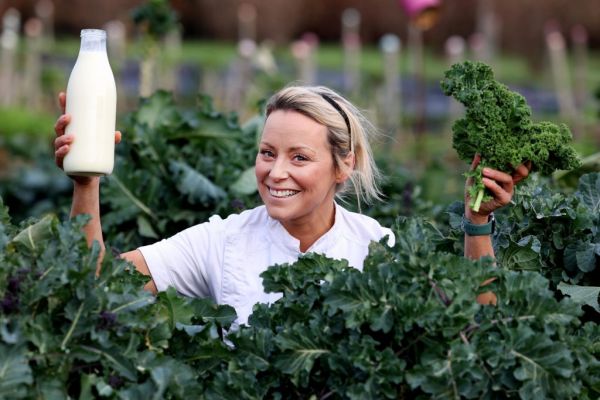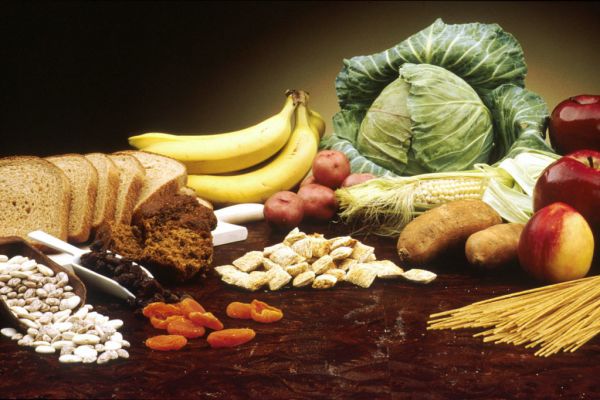More renowned for its textile business, not to mention colossal retail outlets in Rathcoole, Kilmacanogue and, as of October 2nd, Malahide, Avoca recently added another element to its portfolio with the opening of its first food-only store in Monkstown, Co. Dublin. As food director for the company, Simon Pratt, tells Stephen Wynne-Jones, it’s an enterprise that hasn’t gone unnoticed by the denizens of SoCoDu.
In a world in which differentiation is key, sometimes it pays to stick to your guns. The Avoca retail business, which is approaching its 40th year in two years time, was tipped by many to be one of the first victims of the downturn - would there really be the same appetite for €300 lambswool jackets in a recession?
But the business has not just persevered, it has thrived. Pre-tax profits at the company rose 3% in the company’s most recent set of results (for the 12 months to the end of January 2011), while revenue increased 6% over the period, from €45.9 million to €48.6 million. And remarkably, all this has been achieved thanks to the company sticking to its core strengths, offering high-quality, genuine Irish products, and not succumbing to the ‘discount fever’ of many of its rivals.
The food side of the business has also been evolving, under the guidance of Simon Pratt, one of the four siblings of Donald and Hilary Pratt (the company’s founders) that now look after the business. Earlier this year, Avoca opened its first food-only store, in Monkstown, south Dublin; a risky strategy for a company founded on a longstanding textile heritage, but one that appears to be paying off.
As Pratt, the company’s food director, tells Checkout, it’s all about offering a perception of quality to consumers, enhanced by the Avoca association. “Supermarkets today are so sophisticated that they could match what we do in a moment’s notice if they wanted to,” he explains. “But they also recognise that they are operating at the mass end of the game, and there’s room for independents to occupy a more niche position.”
Developing The Format
The approach at the Avoca Food Market & Salt Café, to give the venture its full title, is markedly different to that of many of the other outlets in the group; it’s significantly smaller, for one thing (around 3,000 square feet; the soon-to-be-opened store in Malahide will be 19,000 square feet), its only focus is on food, and it’s the only outlet to offer concessions to other food operators.
“To be honest, we were most interested to see if it we could make it work,” Pratt explains. “We would be better known for big, capital intensive outlets, and there are not that many premises that tick the boxes in that regard, particularly around Dublin. Plus, if you have too many of them, you run the risk of cannibalizing your own business.
“If you are going to do something like this [Monkstown], there needs to be a compelling argument, a reason for people to come. We felt that we had developed the food offering sufficiently across the rest of the portfolio, and we had the right mix of independent producers in place to support a venture like this.”
The ‘niche’ element of the offering is best represented by the presence of concessions; Elaine O’Connor, formerly of Sheridan’s Cheesemongers, mans the dedicated cheese and charcuterie room, there’s a French-style rotisserie operated by Poulet Bonne Femme, and, most significantly, there’s a substantial space devoted to James Whelan Butchers, headed up by Pat Whelan, a fifth generation butcher with an enviable reputation in his hometown of Clonmel.
“The store isn’t that big, so we asked ourselves how best we can maximise the use of space; what do you really need to have in a top-class food market,” says Pratt. “We knew about Pat’s reputation in Clonmel; he has a Dunnes next door to his shop, which can’t compete on fresh meat, such is his popularity. We talked about what we were trying to do here, and how we were trying to present the food ‘just the way it is’, which really appealed to him.”
The butchery area is arguably the most impressive element of the store; featuring whole carcasses hanging behind triple glazed, condensation free glass, and really bringing the artisan touch to the forefront of the operation. “We had seen a few examples like that from around the world, such as The Ginger Pig [a portfolio of classically-themed artisan butchers in London] and wanted to create a showcase for the produce,” says Pratt, “but on top of that we knew we had to use different cuts of meat, and show more respect for the product. People are much more interested in the finer details these days.”
Creating a Niche
The store’s success thus far has been founded on the ‘affordable luxury’ angle; products may cost slightly more than in traditional supermarkets, but customers acknowledge the quality that comes with the Avoca name. “A typical customer might look at our ready meals selection, and say ‘well, that’s as good as I can make at home, and I don’t have the time to cook tonight’,” says Pratt. “I’ve a massive respect for the supermarket industry, and the ready meal offers available to customers, but with us, it’s just a different proposition. People don’t mind paying a couple of extra quid because they can see the extra care and attention that went into it.”
For this reason, Pratt distances the store from the likes of Fallon & Byrne and Donnybrook Fair; while it does stock one or two well-known brands, such as Glenilen Farm, the offering is strictly artisan, from the likes of Frank Hederman and Gold River Farm. “You wouldn’t come here to get your pint of Avonmore milk, for example,” he smiles.
The accompanying café, Salt, is another hugely popular draw (judging by the queues most weekday lunchtimes), and ties in with the overall approach; products from the store are showcased on the menu. The fact that many of the artisan products line the walls of the café also helps with cross-purchasing. “I like the idea of the café being a café within a food market, rather than having two separate entities. When we opened up first, it was just a retail offering, and things were slow to get off the ground, so we introduced about 8 or 10 covers, which has expanded pretty significantly. I think having quality products surrounding you when you’re eating is like art, particularly if you’re a foodie.”
Small extras, such as the café menus, also strike the right note; the back of the menu features a lengthy except from author David Eagleman’s Sum, offering an intriguing synopsis of life’s ‘wasted hours’: ‘You spend six days clipping your nails. Fifteen months looking for lost items. Eighteen months waiting in a queue’. No mention, however, of the length of time waiting to be served in restaurants.
Spreading The Wealth
Managing such a high turnover of artisan product in a relatively small space is achieved via a dedicated 6,000 sq ft production facility in Bray, which services the entire Avoca network. However, on top of that, certain aspects of the offering are produced in individual stores, which may have a reputation for the quality of a particular product. “Customers appreciate the subtle differences,” says Pratt. “We feel the best bread is made in our Rathcoole outlet, so it’s all prepared there. The best scones are made in Powerscourt. Salads are prepared here. It’s a balancing act; there are things that can be done successfully in certain locations, and things that can’t. It’s important to draw the line at what can be done, and tailor your offering around that.”
As to whether the store is the first of many such ventures for Avoca, Pratt is keeping that one close to his chest. “It’s too early to say if we’re definitely going to do more of them. Malahide has been in the pipeline for far longer than this was; it’s four times the size and is more along the lines of a traditional Avoca outlet. The opening of Monkstown was really something that took advantage of the downturn; in that it presented us with the opportunity to develop something a bit different. The way things are at the moment, there’s not as much leeway to make mistakes in business. But the opportunities are there if you’re willing to explore them.”









